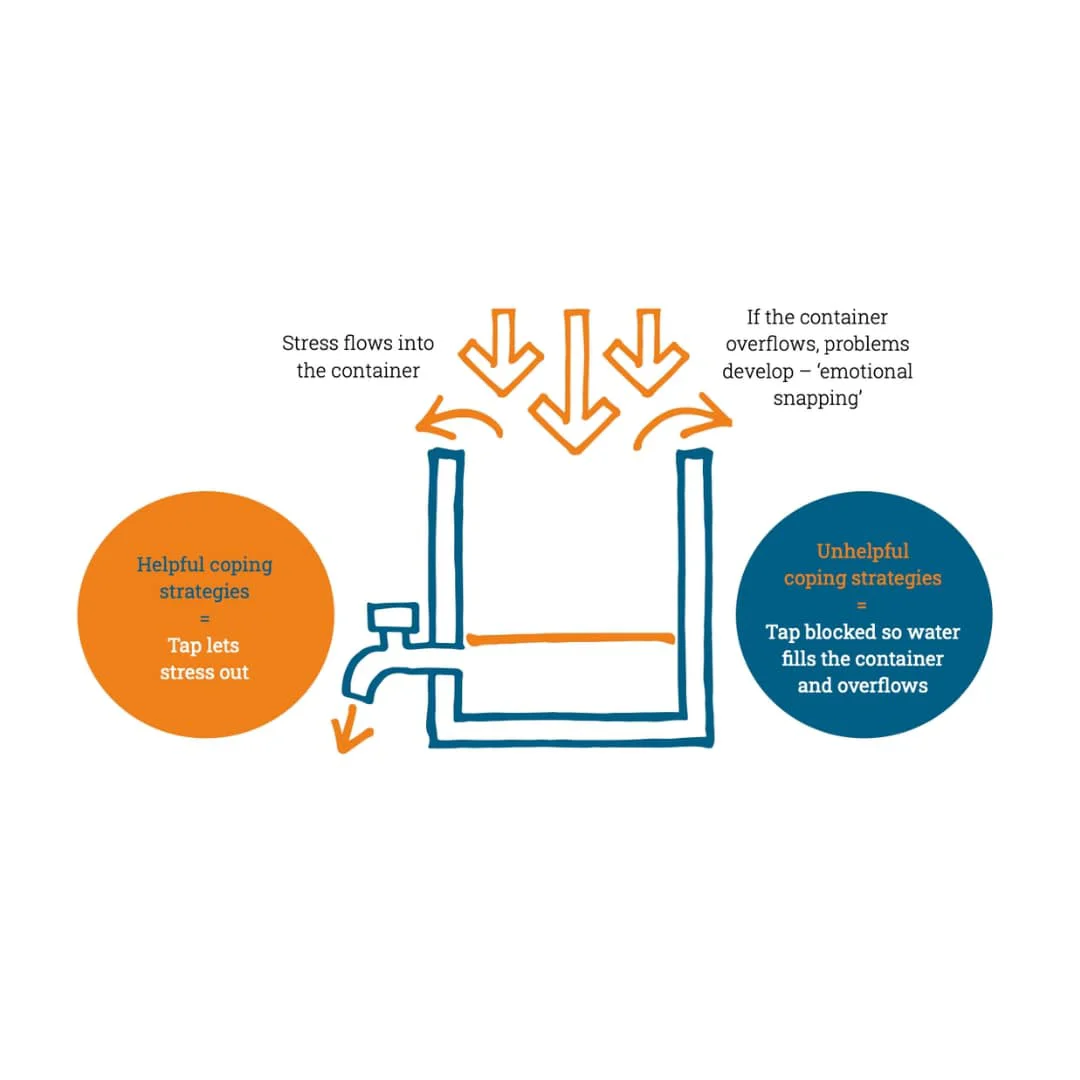This is really important for your productivity and self-care. Each week allocate time to address your learning requirements because it can be a huge benefit when your deadlines, assessments or exams arrive.
Managing stress and anxiety
This resource offers guidance on how to manage your time and stress levels ahead of exams or assessments, and strategies to help you keep yourself mentally well. Inside you’ll find practical tips for managing stress along with techniques to reduce anxiety.
What is stress?
Whatever your role in the university, you may notice students that you are familiar with acting differently from normal. Perhaps you may notice changes in appearance or behaviour which concern you.
According to the Health and Safety Executive, stress is “the adverse reaction people have to excessive pressure or other types of demand placed on them.”
As you probably know, if you’re under a lot of stress, it’s easy to feel overwhelmed. However, stress is not all bad. It’s a natural response in the human body. Feeling a small amount of stress about assessments or exams will actually enable you to prepare and do your best. It’s when there’s too much that it can be potentially damaging.
How does stress affect our mind and body?
Whatever your role in the university, you may notice students that you are familiar with acting differently from normal. Perhaps you may notice changes in appearance or behaviour which concern you.
Stress releases adrenaline and cortisol which gives us a surge of energy. Too much adrenaline and cortisol can have a damaging effect on:
- Our immune system
- Our sleep pattern
- Our short and long-term memory
- Our capacity to learn, concentrate and focus
- Our relationships
- Our mental and physical health
It can be useful to think about this in terms of a ‘stress container’. Imagine that your worries and stresses are filling up a container.
The Stress Bucket – Mental Health UK
If you keep adding worries and stresses to the container it might overflow – that’s when we can see outbursts of emotions such as anger, irritability and distress.

Helpful coping strategies for stress
Using helpful coping strategies is like opening the tap, to stop the container overflowing.
Might include:
- Exercise
- Being outdoors
- Time with friends
- Listening to music.
Unhelpful coping strategies for stress
These will block the tap and increase stress levels, for example:
- Misuse of alcohol/drugs
- Isolating from friends and family
- Not enough sleep
- Not taking breaks
Are you overly stressed?
Here are some signs to look out for:
- Lack of motivation
- Absence from work
- Inability to concentrate
- Feeling bad tempered
- Having overwhelming emotions
- Constantly feeling tired
- Prolonged increased breathing/heart rate
These will be different for everyone – it’s important to notice changes in yourself.
